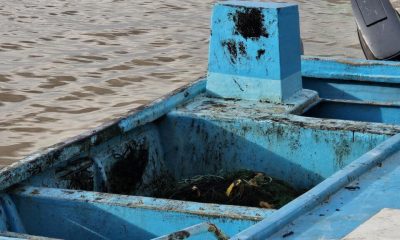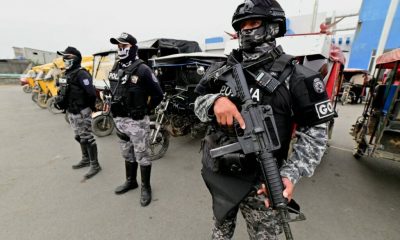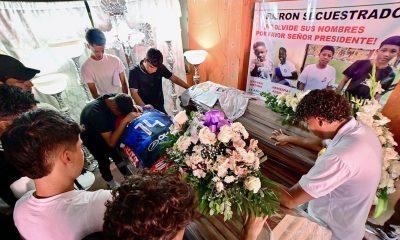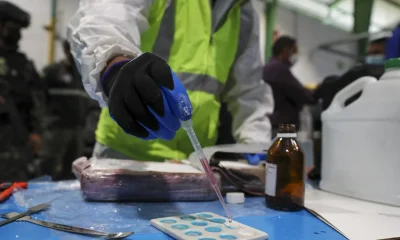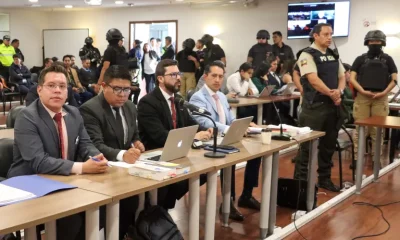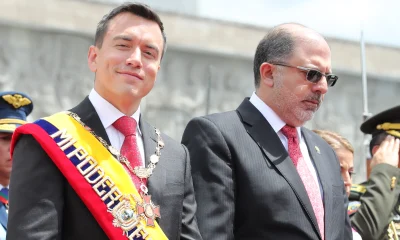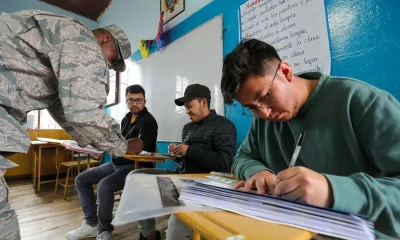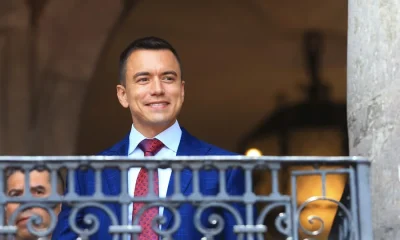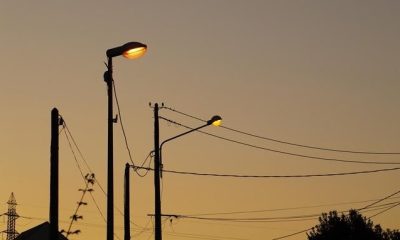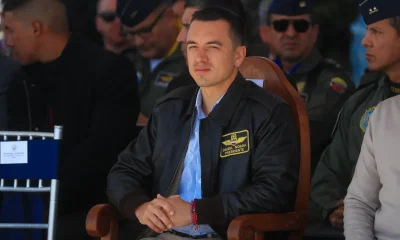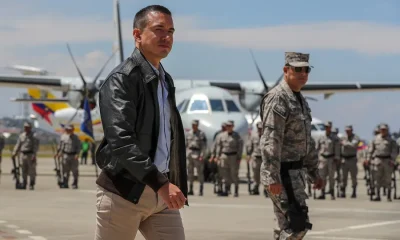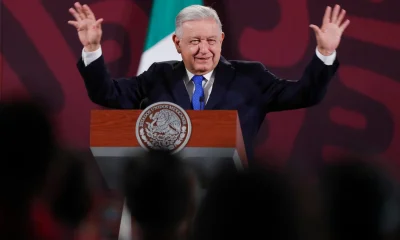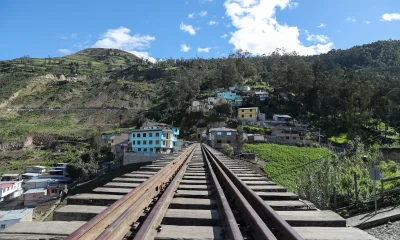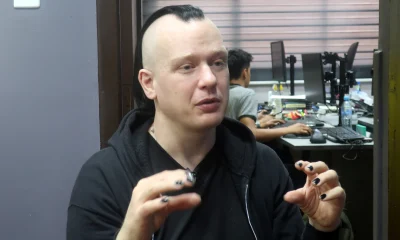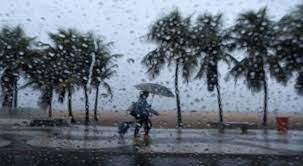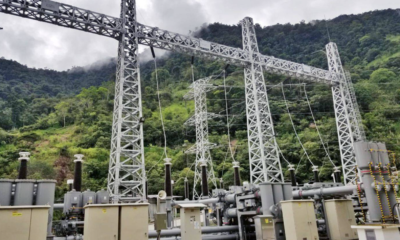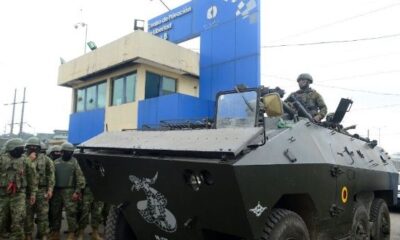International
Murder of presidential candidate Fernando Villavicencio shocks Ecuador
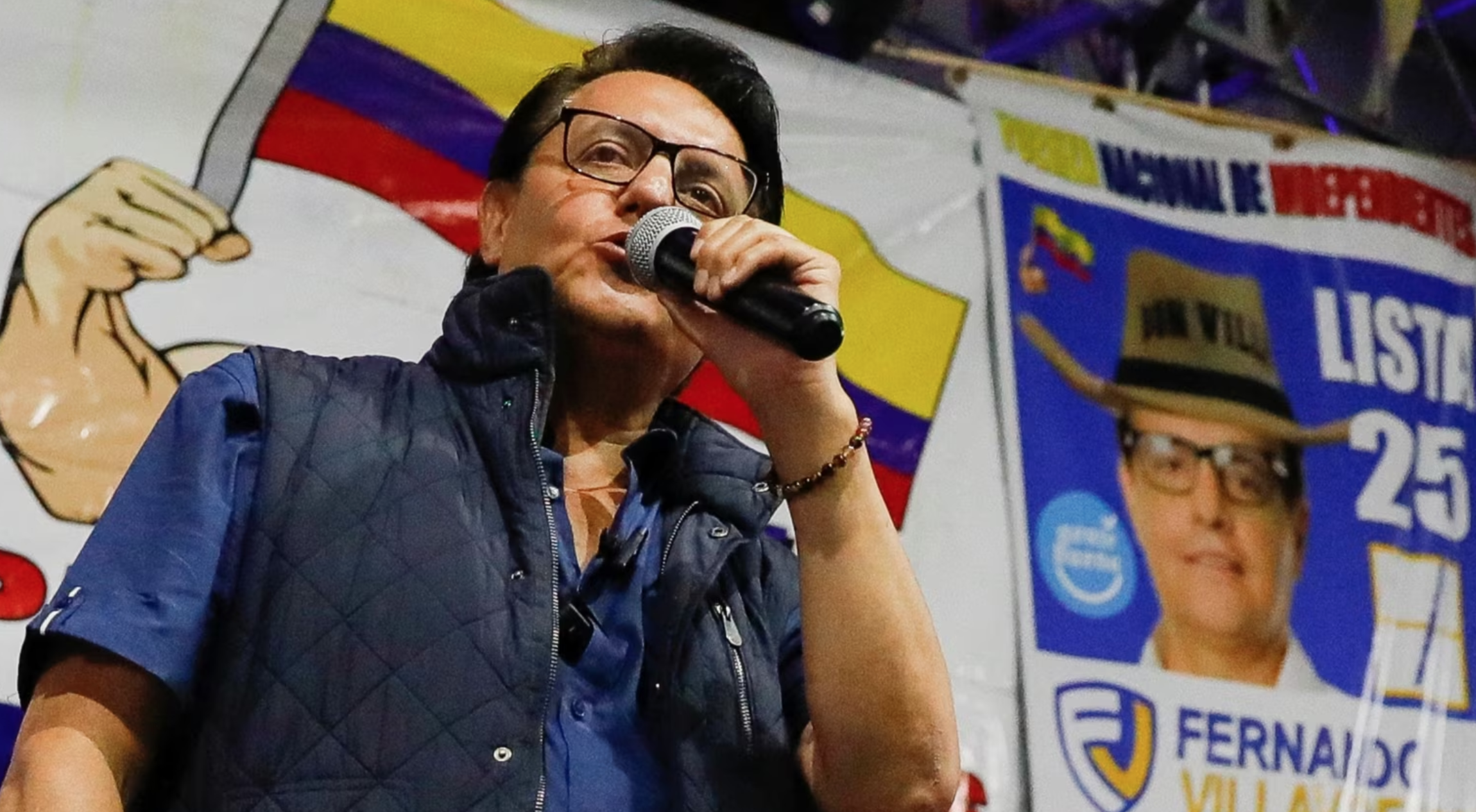
August 10|
Ecuador’s presidential candidate Fernando Villavicencio, a champion of the anti-corruption fight and known for his statements against criminal gangs and drug trafficking, was killed on Wednesday in Quito in a shooting attack outside a political rally, just over a week before the general elections and amid a wave of violence affecting various parts of the South American country.
Villavicencio died in a clinic 100 meters from the site of the attack, while police carried out a controlled explosion of a grenade that had been thrown in front of the rally site.
After the death was confirmed, presidential candidate Otto Sonnenholzner, of the Actuemos coalition, called on the other candidates to stop campaigning and come together to form a single force in the fight against crime.
President Guillermo Lasso, who called the murder a “political crime” and said it was intended to “sabotage the electoral process”, confirmed that the election date would be kept, albeit with additional security measures including a military deployment.
He also decreed three days of national mourning for the death of Villavicencio.
The Attorney General’s Office informed near midnight on the social network X, formerly Twitter, that six people have been arrested in connection with Villavicencio’s murder. Earlier it had specified that a suspect in the attack was wounded during the exchange of bullets with security personnel, was apprehended and taken badly wounded to the Flagrancy Unit in Quito, where he died of his wounds.
The criminal organization that calls itself “Los Lobos” published a statement on the social network X — formerly known as Twitter — claiming responsibility for the murder of Fernando Villavicencio and threatening that “it will happen again when the corrupt don’t keep their word.
Villavicencio was one of eight registered candidates for the August 20 presidential election. The 59-year-old politician was not among the favorites, with a meager 10% of the preferences, although he was a recognized figure for having denounced in the past several cases of alleged government corruption.
He was married to Verónica Sarauz and leaves five children.
In recent days, the presidential hopeful had publicly denounced that the leader of a local criminal group linked to Mexico’s Sinaloa cartel had threatened him, although so far no Ecuadorian authorities have pointed to any specific criminal organization. Villavicencio had also alleged links between politicians and drug traffickers.
In the last video in which he is seen alive, he is seen leaving the school grounds where the political rally was held surrounded by police, who help him into a vehicle. Before closing the door, a series of gunshots and desperate shouts from supporters can be heard.
Following the attack, Ecuadorian authorities did not disclose the possible motive behind the attack. Patricio Zuquilanda, an advisor to the candidate’s campaign, told The Associated Press that Villavicencio had received two death threats, although he did not give further details.
International
Federal Judge Blocks Trump Policy Allowing Deportations to Third Countries

A federal judge ruled on Wednesday that the policy of U.S. President Donald Trump’s administration allowing immigration authorities to deport foreign nationals to third countries without prior notice or the opportunity to object is unlawful. The decision marks another legal setback for the administration on immigration matters.
Judge Brian Murphy of the U.S. District Court for the District of Massachusetts struck down the regulation issued last year, which stated that Immigration and Customs Enforcement (ICE) was not required to notify migrants if they were to be sent to countries other than the one listed in their removal order, provided that receiving nations offered assurances they would not face persecution or torture.
Murphy ordered the measure vacated but granted a 15-day delay before the ruling takes effect, giving the Trump administration time to file an appeal.
In his decision, the judge concluded that the policy violates federal immigration law and migrants’ due process rights. He also questioned the lack of transparency surrounding the alleged assurances provided by receiving countries, stating that “no one really knows anything about these supposed ‘assurances.’” He added, “It is not right, and it is not lawful.”
The ruling follows several legal disputes involving deportations to third countries. Last year, the executive branch deported more than 200 Salvadorans to a maximum-security prison in El Salvador, invoking an old wartime law. The White House also held talks with Costa Rica, Panama, and Rwanda about receiving migrants who are not citizens of those countries.
In May, the same judge determined that the government violated a court order when it attempted to remove a group of immigrants with criminal records to South Sudan without prior notice or an opportunity to raise claims of fear of persecution.
Although President Donald Trump took the case to the U.S. Supreme Court, which temporarily allowed the deportations to resume while a final decision was pending, the White House is expected to again appeal to higher courts to overturn this latest judicial ruling.
International
Cocaine Production Surges 34% in 2023 as Market Expands into Africa and Asia

The global cocaine market is the fastest-growing among all illicit drugs worldwide, the International Narcotics Control Board (INCB) warned on Thursday in its annual report presented in Vienna.
The body attributes this expansion to the sustained rise in production in South America — particularly in Colombia — as well as increasing demand in emerging regions such as Africa and Asia.
According to the report, global cocaine production surpassed 3,700 metric tons in 2023, marking a 34% increase compared to 2022. This growth is largely driven by the expansion of illicit coca cultivation in Colombia and the greater production capacity of clandestine laboratories.
The INCB noted that the market has not only grown in volume but has also diversified and become more globalized. While Europe and North America remain the primary destinations, trafficking routes now reach “all regions of the world,” including Africa — traditionally considered a transit zone — and Asia, where the presence of cocaine was previously marginal.
In Western and Central Europe, for the fifth consecutive year, seizures in 2023 exceeded those in North America, consolidating the region as the leading destination market. Between January 2019 and June 2024, more than 1,826 metric tons of drugs bound for European ports were seized, of which 82% was cocaine, equivalent to 1,487 metric tons.
The report also highlights that seizures in Africa rose by 48% in 2023 compared to 2022, reflecting the expansion of the market on the continent. Globally, the number of cocaine users increased from 17 million in 2013 to 25 million in 2023.
International
Clinton Accuses Republican Committee of Using Epstein Case to Shield Trump
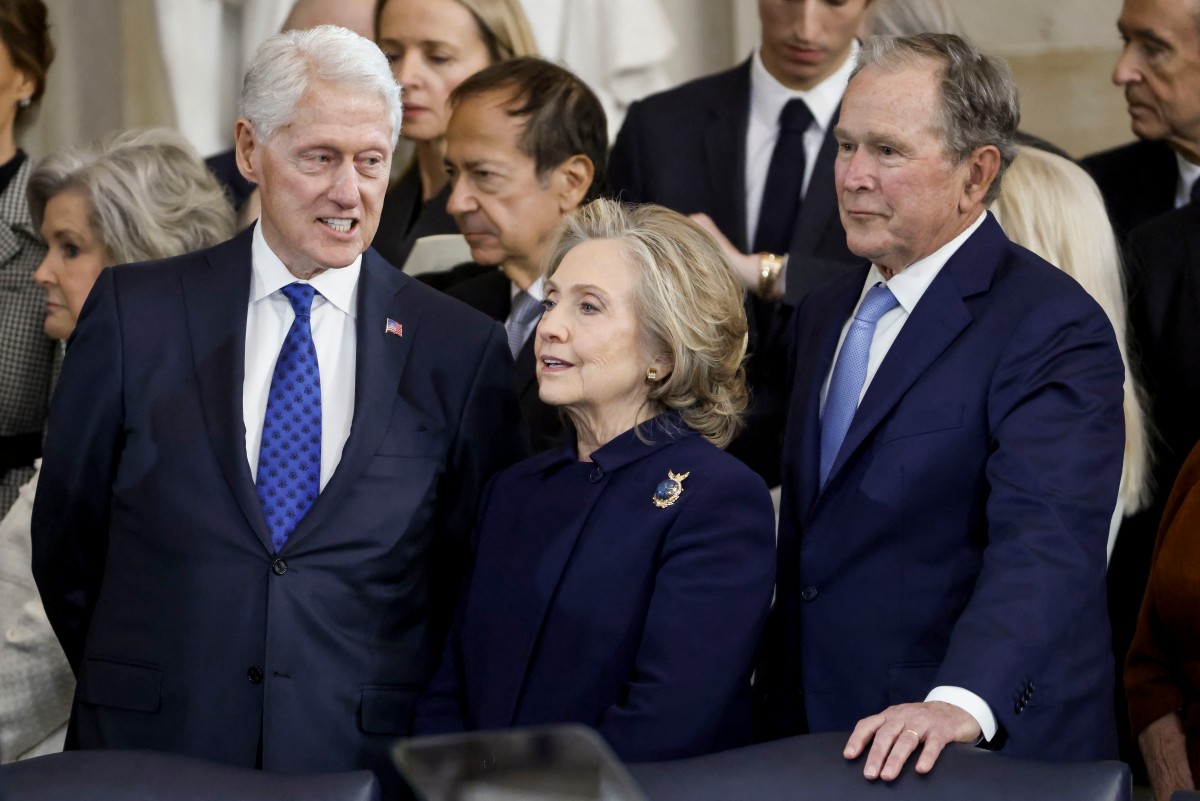
Former U.S. Secretary of State and former First Lady Hillary Clinton denied on Thursday before a congressional committee that she had ever met convicted sex offender Jeffrey Epstein in person or had any knowledge of the crimes he committed.
Clinton testified behind closed doors from New York before the House Oversight Committee. The wife of former President Bill Clinton — who is scheduled to testify on Friday — accused the Republican-controlled committee of summoning her in order to “distract attention” and “cover up” the activities of President Donald Trump, who had past ties to Epstein.
“I do not recall ever meeting Mr. Epstein. I never flew on his plane nor visited his island, his homes, or his offices. I have nothing further to add,” she stated.
The former Secretary of State emphasized that she “had no idea about the criminal activities” of the financier, who died in prison in 2019. “Like any decent person, I was horrified when I learned of his crimes,” she said.
Clinton described the Epstein case as “a tragedy” and “a scandal” that deserves “a thorough investigation,” but criticized the committee for failing to summon what she called the truly relevant individuals.
“Instead, you have asked me to testify, knowing that I have no knowledge that would serve your investigation, with the purpose of distracting from President Trump’s activities and shielding him despite the legitimate demand for answers,” she said.
The questioning, conducted behind closed doors in Chappaqua, New York — where the Clintons reside — took place one day before former President Bill Clinton was scheduled to appear at the same location.
Although the Clintons initially declined to testify before Congress, the threat of being held in contempt ultimately led the former presidential couple to agree to appear and explain their relationship with Epstein.
-

 International1 day ago
International1 day agoFamily of “El Mencho” Seeks Return of Body After Deadly Military Operation
-

 International1 day ago
International1 day agoLarry Summers Steps Down from Harvard Role Amid Epstein Controversy
-
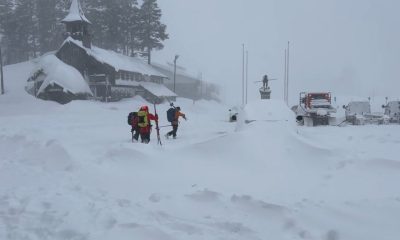
 International5 days ago
International5 days agoNinth Victim Recovered After Deadliest U.S. Avalanche in Decades
-

 International1 day ago
International1 day agoIran’s President Optimistic Ahead of Geneva Nuclear Talks with U.S.
-

 International3 days ago
International3 days agoOver 40 Million Affected by Major Snowstorm in Northeastern U.S.
-

 International1 day ago
International1 day agoStephen Hawking Photo Appears in Newly Released Epstein Documents
-

 International1 day ago
International1 day agoBill Gates Admits “Serious Mistake” Over Epstein Ties
-

 International3 days ago
International3 days agoNine People Killed in Two Armed Attacks in Manabí, Ecuador
-

 International2 hours ago
International2 hours agoCocaine Production Surges 34% in 2023 as Market Expands into Africa and Asia
-

 International2 hours ago
International2 hours agoClinton Accuses Republican Committee of Using Epstein Case to Shield Trump
-

 International2 hours ago
International2 hours agoFederal Judge Blocks Trump Policy Allowing Deportations to Third Countries



























